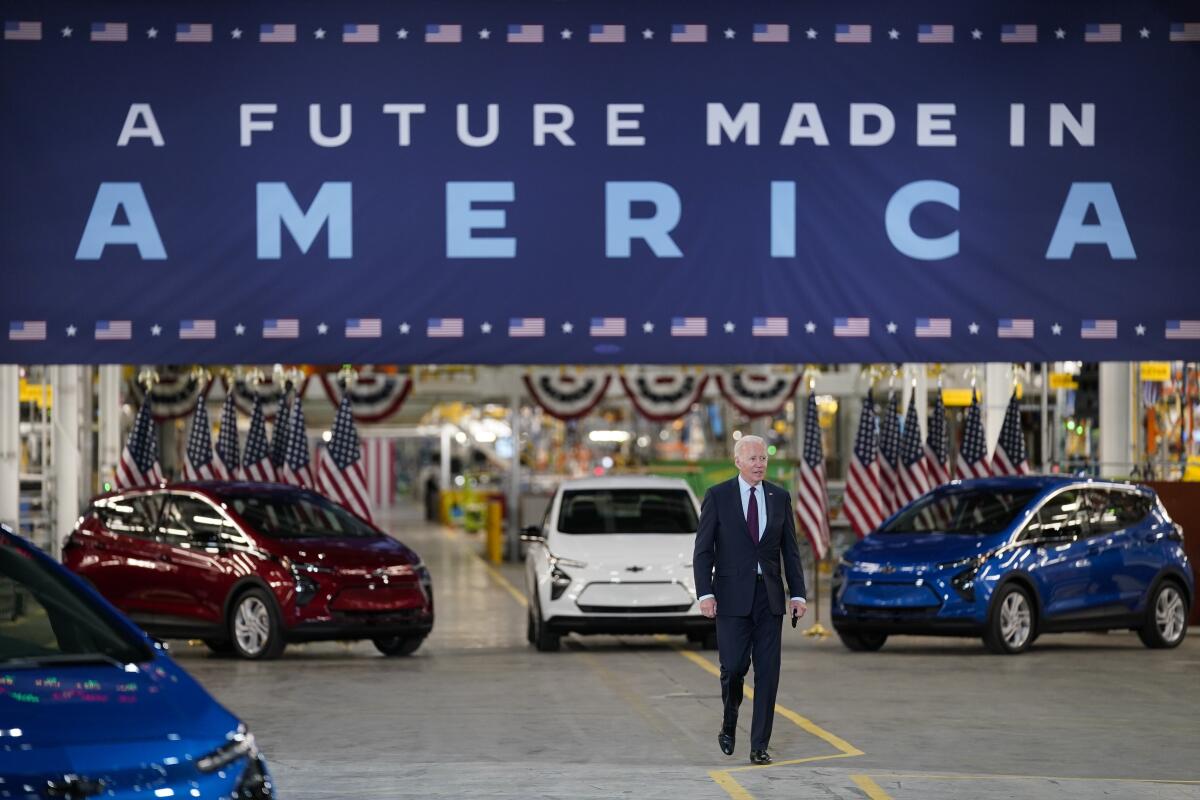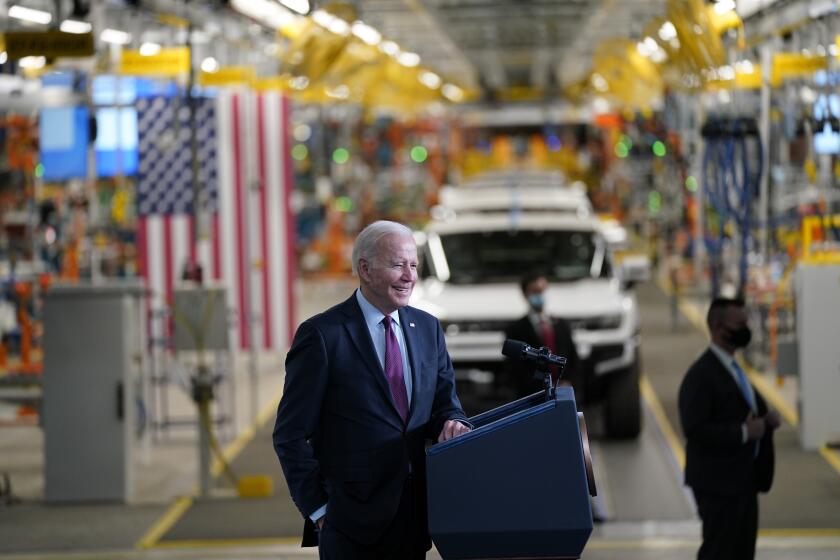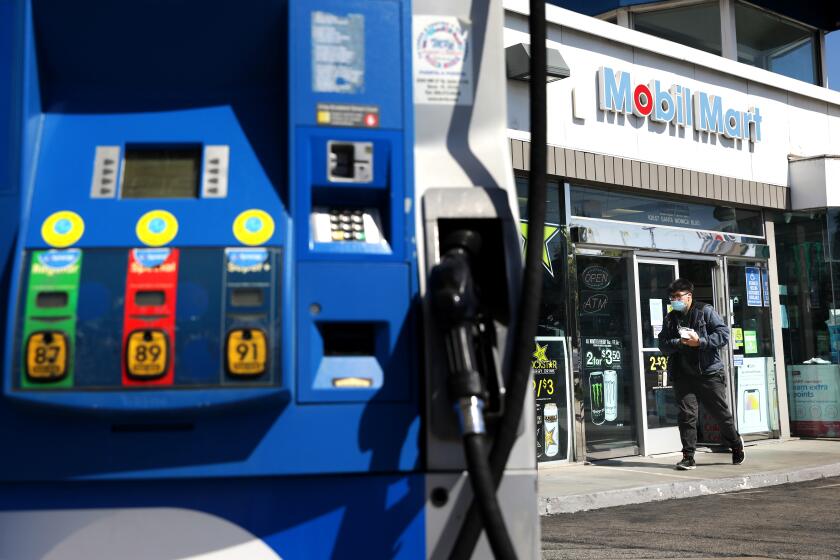Editorial: Hold the applause. Biden’s new EV rules don’t go fast enough for the climate crisis

It may be tempting to look at new rules finalized Wednesday by the Biden administration boosting sales of electric vehicles as a big step toward slashing climate-changing pollution.
But the Environmental Protection Agency rules are more an incremental move, too weak and slow to respond appropriately to the gravity of the unfolding environmental crisis. And that’s a shame, because with a divided Congress, administrative action is the only way for the federal government to do big things such as protect the public from climate change and pollution.
The administration blew this opportunity by caving to pressure from powerful interests during an election year and settling on a watered-down plan that will allow automakers to build more gas-guzzling vehicles for longer and slow down urgently needed pollution cuts. We’re in the race of our lifetime against climate change and President Biden is driving way below the speed limit.
President Biden is reportedly looking at delaying electric vehicle rules in an apparent campaign strategy. But backing away from environmental standards is not good for the country, or his reelection.
The final rules impose greenhouse gas pollution limits that will force automakers to ramp up sales of new zero-emission cars and light-duty trucks from about 7% of vehicles sold today to more than 67% by 2032. That’s good, of course, but it’s a more gradual requirement than the EPA first proposed, delaying the steepest increases in electric vehicle sales until after 2030 and granting loopholes that make it easier for manufacturers to comply. That’s a mistake at a time when the climate crisis is smacking us in the face, with February marking the ninth consecutive month of record-setting heat on the planet.
Speed matters, after all, in preventing catastrophic climate impacts, and the longer we wait to toughen these standards, the more cumulative carbon dioxide emissions we spew into the atmosphere.
Big Oil wants you to think that California’s high gas prices are because of state climate policies. But the oil industry is actually responsible for much of it.
The administration’s softening of its vehicle emissions proposal is an election-year gift to the auto industry, which has pushed to weaken the rules so it can keep making more money from gas-fueled models. It’s also a concession to organized labor, including auto industry workers who are understandably fearful about the move to electric vehicles shifting jobs to nonunion factories with lower wages.
The powerful United Auto Workers union praised the version released Wednesday as a “more feasible emissions rule that protects workers building [internal combustion engine] vehicles, while providing a path forward for automakers to implement the full range of automotive technologies to reduce emissions.”
General Motors’ agreement to include autoworkers in battery manufacturing shows climate action to electrify the economy doesn’t have to mean abandoning workers.
But there are better ways to support workers than by blunting the federal government’s most powerful tool to address pollution from transportation, now the largest source of emissions. Protecting good-paying, union jobs should not have to come at the expense of protecting the environment. The administration should look to other ways to smooth the transition, like building on the slew of clean manufacturing incentives that have begun rolling out under the Inflation Reduction Act, and working to build out the nation’s lackluster vehicle charging network.
Climate change is such an existential threat that even taking one of the biggest federal actions to date to cut emissions can be viewed as a failure for lacking the necessary ambition. Biden should be doing all he can to get ahead of the climate crisis and dominate the clean energy economy of the future, not easing off the accelerator in hopes that it could help him win reelection.
More to Read
A cure for the common opinion
Get thought-provoking perspectives with our weekly newsletter.
You may occasionally receive promotional content from the Los Angeles Times.













